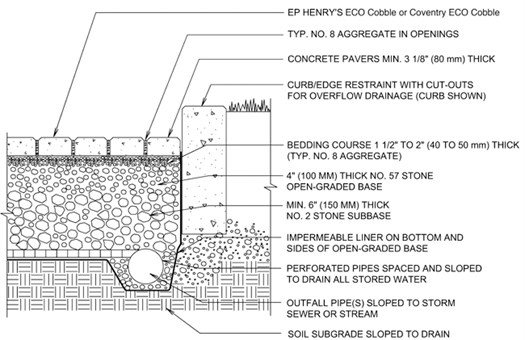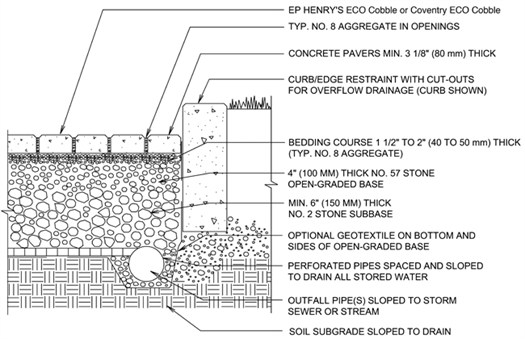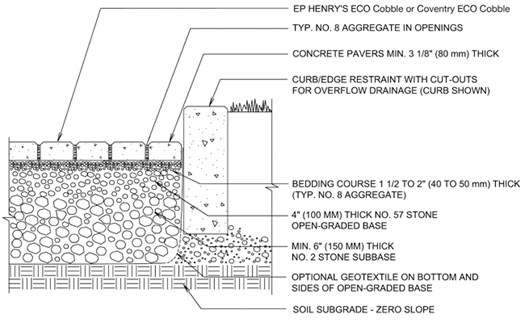You are here
Stormwater Management
We are located within the Chesapeake Bay watershed. Nearly every day, we hear something in the news about how pesticides, fertilizers, and motor oil are damaging our environment, specifically our waterways.
How did we create this problem?
Well, every new roadway, residential development, office park, or shopping mall that is built creates an additional obstacle for the earth’s natural water filtration process. The rain water has limited access to ground soil and its organic cleansing action, so the water picks up additional contaminants from yards and roadways, then runs directly into our smallest creeks and streams until it reaches our rivers and the bay. This is polluting our very own drinking water and harming aquatic life, including our beloved Maryland blue crabs and oyster beds.
Check out Techo-Bloc's video below to learn more about this problem:
What can we do to make a difference?
Consider installing a permeable pavement system. Permeable pavers help control water runoff, decrease the impervious surface area of parking lots and driveways, refresh the aquifer, and ecologically manage contaminants.
In Nicaragua—a third-world country—most of their roadways and parking lots are made with pavers. This is a country that deals with a rainy season that has frequent torrential downpours. Paver roadways and parking lots help them deal with their stormwater runoff much more efficiently than we do here in the United States.
Yes, asphalt and concrete are less expensive. That’s why most of our roadways are covered in asphalt or concrete, but that’s not the responsible solution. The responsible solution is a permeable pavement system: Eco-Pavers!
We can start by installing permeable pavers in our driveways. Next, we can encourage our local elected officials to build new parking lots and roadways utilizing permeable pavement solutions. Check out the video below to see a permeable paver job designed and built by us:
Benefits of permeable pavements include:
- Reducing stormwater runoff up to 100%, depending on project design parameters.
- Allowing for retention and storage of stormwater for possible reuse for irrigation and other non-potable applications.
- Lessening or even eliminating downstream flooding and stream bank erosion issues.
- Minimizing impact and stress on existing sewer systems.
- Enhancing land-use planning and more efficiently using land in urban areas.
- Reducing the need for stormwater retention ponds.
Check out EP Henry's video below talking about permeable pavers and stormwater management:
Three types of installation options

No Exfiltration:
If your soil has high clay content, you are constructing over bedrock, a high water table, or environmental hot spots. The No Exfiltration option is appropriate.

Partial Exfiltration:
If your soil is of medium texture with roughly equal portions of sand, silt, and a little less clay, the Partial Exfiltration construction detail would be appropriate.

Full Exfiltration:
If your soil is very sandy with no clay and very few fine particles, the Full Exfiltration construction option can be used.
